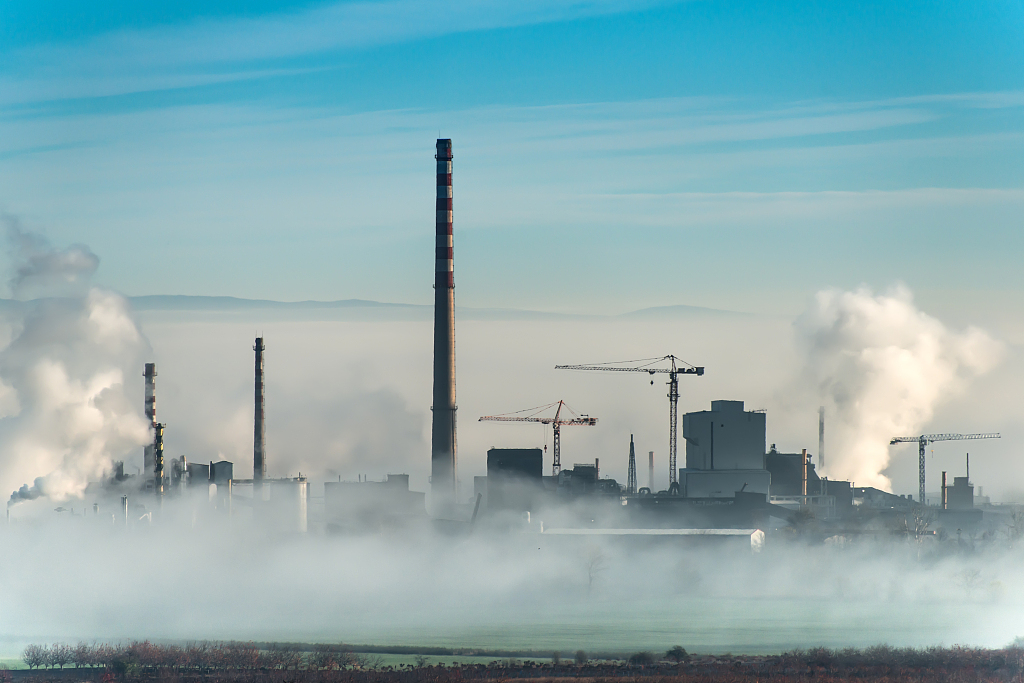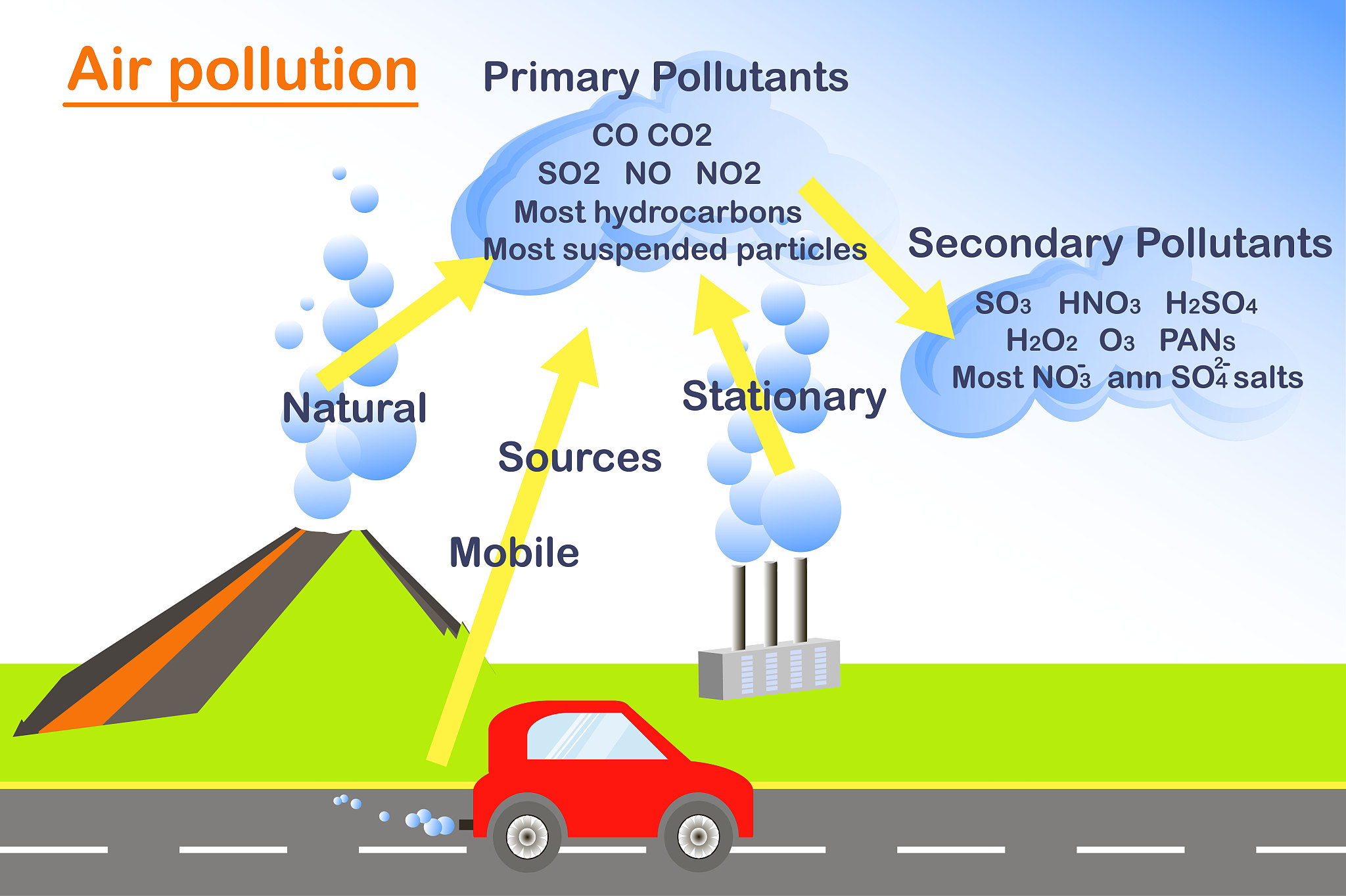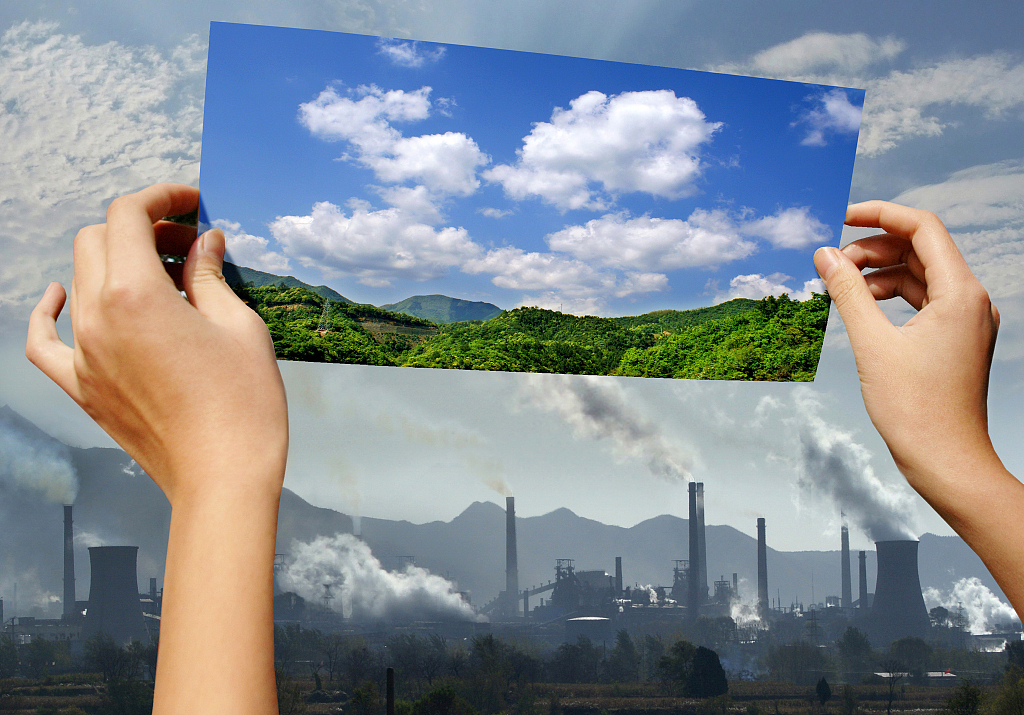As more and more countries around the world move towards lifting of COVID-19 lockdowns and people resume work and normal lives, cleaner air has been a common observation. Some jokingly call it a psychological impact of post-lockdown freedoms, but unintended pollution declines are the fact of the matter.
According to recent studies on global air quality, cities worldwide have been reporting reduced pollution levels as compared to pre-pandemic figures. Washington, D.C. is reportedly to experience the cleanest spring air in 25 years, and Los Angeles, one of the severely polluted U.S. cities, has lately witnessed great improvement in air quality.

Los Angeles, California, U.S. /VCG
Los Angeles, California, U.S. /VCG
In China, where air quality remains an important issue, the COVID-19 outbreak has led to lower pollution levels. According to data released by China's Ministry of Ecology and Environment, PM2.5 levels decreased by more than 20 percent during January and April in 337 cities compared to previous months.
Experts say decreased industrial activity and reduced vehicular emissions are the major reasons behind the temporarily cleaned air.

Experts say decreased industrial activity and reduced vehicular emissions are the major reasons behind the temporarily cleaned air. /VCG
Experts say decreased industrial activity and reduced vehicular emissions are the major reasons behind the temporarily cleaned air. /VCG
Air quality directly impacts human health. Areas with poor air quality are usually polluted by Nitrogen dioxide, which is a highly reactive gas emitted by vehicles, power plants and industries. The gas has many harmful effects on human lungs, increasing risks of heart and lung diseases. A scientific research published in The Lancet shows that clearer air might avoid over 8,000 cases of air pollution-related deaths in China.

What leads to air pollution? /VCG
What leads to air pollution? /VCG
So what are the lessons learnt on air pollution during the COVID-19 pandemic?
If lockdowns that continued for a few months could bring such a big positive change in air quality, what can we do to turn this "temporary change" into a usual occurrence?

What should human do to turn this "temporary change" into a usual occurrence?/VCG
What should human do to turn this "temporary change" into a usual occurrence?/VCG
Governments around the world have already introduced new regulations against air pollution in the past decade. When following these regulations, one can make some smart choices at an individual level to help maintain clearer air:
1. Energy conservation: More energy means more industrial activity leading to more emissions.
2. Pick public transport: Use pubic transportation instead of private cars. Riding green bikes or walking are the two best options.
3. Replace your old dirty woodstove with a cleaner and more efficient heating alternative such as gas, oil, propane, or electric heat.
4. Consider purchasing environmental-friendly gadgets for home and work.
(Cover image via VCG)
(If you want to contribute and have specific expertise, please contact us at nature@cgtn.com.)